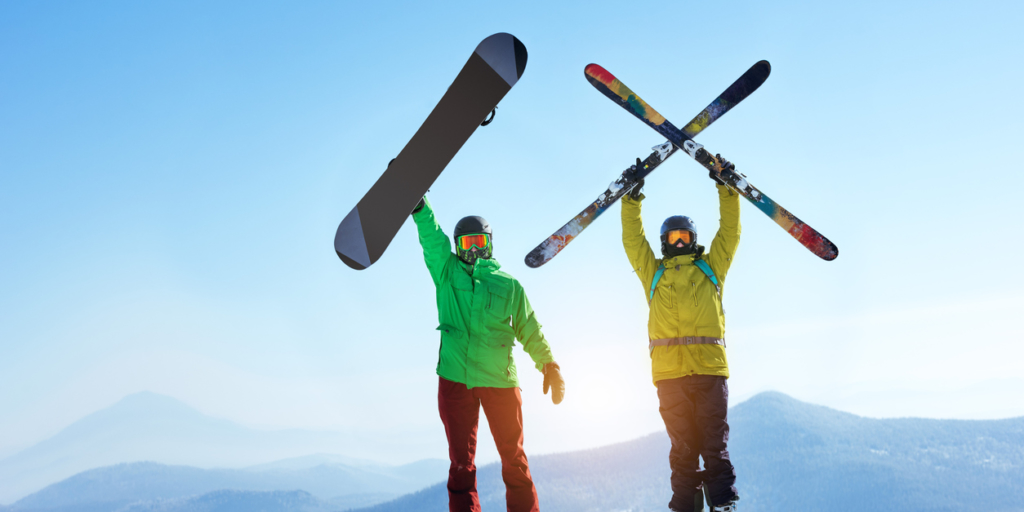Snowboarding and Skiing Accidents Can Be Easily Avoided

The trained athletes we watched in awe made it look so easy! They flew down each run with grace, manipulated each turn perfectly, jumped effortlessly, and landed flawlessly. Maybe you understand you can’t ski or snowboard just like Olympic athletes, but it is easy to get ahead of yourself, or remember your college ski trip days and confidently make your way to the slopes. Even if it’s been a while, snowboarding is just like riding a bike, right? And if you’re a first timer you assume it can’t be that difficult, and decide to skip ski school. But overconfidence is often the reason many people are injured while skiing or snowboarding. Before you trek to the mountains and slide into your skis, make sure you know how to avoid a serious injury.
Common Injuries
The most common injuries related to a ski or snowboarding accident include knee injuries such as anterior cruciate or collateral (ACL) ligament injuries, shoulder fractures or dislocations, fractures in the leg, spinal injuries, head injuries, and a dislocation, fracture, or sprain in the thumb, hand, or wrist. Injuries are likely to happen to those who are overconfident about their skill level and attempt a run that they are not ready for. Don’t let your friends pressure you to attempt a terrain that your skill level cannot sustain. It’s not worth the risk! Injuries may also occur due to an improper use of—or faulty—equipment. A lack of acknowledgment for closed or restricted areas can also lead to very serious, if not fatal, injuries. Dehydration and fatigue can also lead to injury, yet these are both extremely easy to prevent.
Preventing Injuries
If you’ve never been on the slopes before, don’t discount the necessity of instruction. Instructors are available to teach those interested in either skiing or snowboarding. Learning the proper technique will help you be better prepared against potential injury and have you catching up with your friends faster than if you tried to figure it out on your own. Also, be sure that you have the proper equipment and that it is functioning properly. Take your time getting all of your gear on correctly. Make sure bindings are not too loose or too tight as this may lead to injury. Some terrains may recommend wrist guards, knee pads, or elbow pads and some resorts require a helmet to be worn at all times. Protective gear has been linked to a 43% decrease of head, neck, and face injuries in the U.S. If it’s recommended, use it. Use common sense when you’re on the slopes. Give your body time to adjust to the altitude change and drink water frequently. Even though you may not feel hot, you can easily become dehydrated. Stop in between runs to rest and if you feel fatigued, give yourself some time before you head back to the lift. Many injuries occur after lunch when the body is feeling heavy and tired. Also, make sure you pay attention to all warning signs and avoid areas that are considered dangerous or “off-limits.” Parents, it is your job to make sure your child is safe. Lead by example and stay off of terrains that are closed. Be sure to protect your child from attempting a run that is beyond their current skill level. Make sure you and your family take breaks to rehydrate and rest in between runs.
Ski trips have the potential to be a bonding experience filled with many great memories! Don’t let an injury become a dark cloud over a fun vacation. Take all instruction and warning signs seriously so that you have the best time! If you come home with a nagging pain from either a ski or snowboard accident or overusing a muscle group, stop by TrustCare Express Medical Clinic to visit with one of our doctors. Most minor injuries can be treated by bracing and anti-inflammatory medicine. We hope you stay safe, but our walk-in clinics are available to help you Feel Better Faster.
